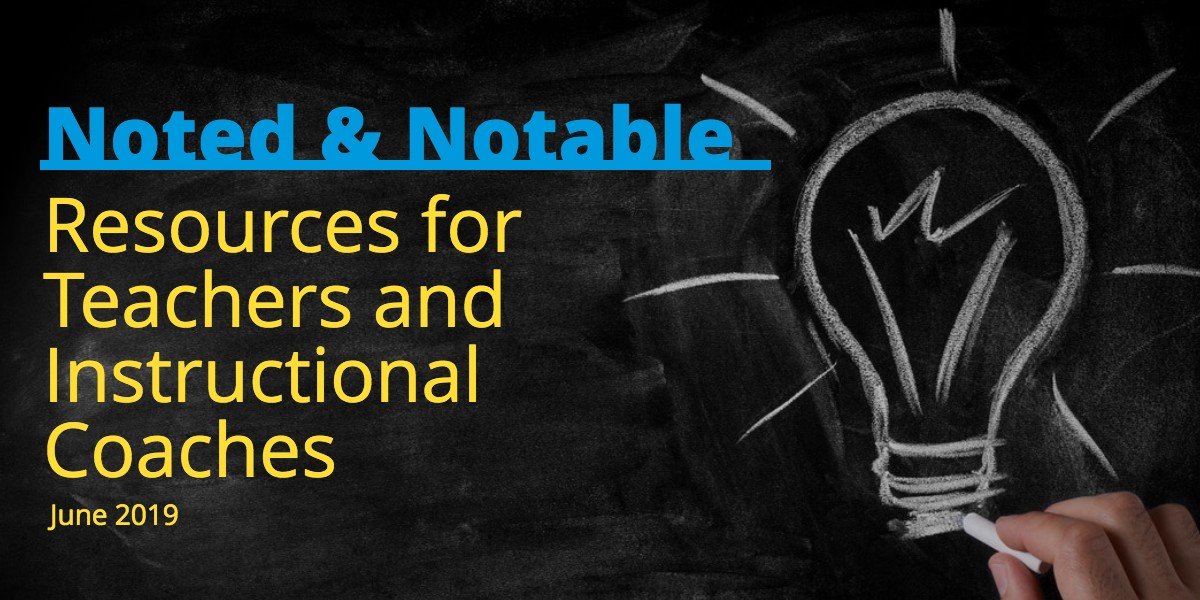Resources for Teachers & Instructional Coaches – June 2019

It’s about time to slide into summer, and these articles can help you prevent the PD summer slide.
Sometimes, fewer coaching touchpoints can be effective
More coaching isn’t necessarily a good thing, according to researchers Matthew Kraft and David Blazar.
Surprisingly, we find little evidence that coaching “dosage”—that is, the number of times teachers and coaches meet—is associated with the effectiveness of a given coaching program. We interpret this descriptive finding to mean that, when comparing across coaching programs, quality matters more than quantity. Coaching models that build in frequent observation and feedback cycles are not uniformly better; other program elements such as coach quality matter, too. We speculate, however, that for an individual coaching program of fixed quality, it is likely better to have more coaching cycles, not fewer.
Read more on Education Next: Taking Teacher Coaching to Scale
PD feeling like a fizzle? Ask your teachers for input
Professional development for teachers often focuses on developing the self-reflective practitioner. Sometimes, it’s important to reflect on the PD itself. By allowing teachers to give input into their PD, schools can work toward a system that’s both manageable and meaningful.
Professional development: It happens every year, for every teacher. And yet there’s broad agreement among those who participate that it often—very often—misses the mark. The trainings fail to take teachers’ prior knowledge and experience into account, or use instructional techniques that wouldn’t work with students. The things teachers say they want to learn—how to recover when a lesson goes south, how to recognize their own biases, and design activities that reach all learners—are often overlooked.
Read more on Education Week: A Cleaner Vision for Teacher Professional Learning
Teachers need training on how to learn from their mistakes
Every teacher can relate to the concept of a lesson going astray. Developing resiliency and an ability to move on from mistakes might be what’s holding some teachers back.
Yet even though failing in the classroom is a source of stress, anxiety, and even shame for many teachers, educators say it’s rare to have professional development that centers around bouncing back from a bad lesson or “failing forward,” using the experience as an opportunity for growth.
Read more on Education Week: How Teachers Bounce Back From Failure

